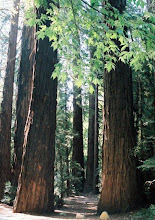A few weeks ago I got a phone call at work from one of my sons, "Guess where I am? I'm on Ellis Island". Then followed a conversation about his great-grandparents and great-great-grandparents who immigrated to this country through Ellis Island. My maternal grandfather and grandmother had not yet met when they came through. Grandfather was a fisherman on the big boats from northern Norway in the Lofoten islands. One of his brothers was sent back from Ellis and not allowed to enter because he was missing a finger (a common injury from being caught in the boat rigging). As far too many people experience today, immigration in real life is neither romantic nor easy and it is a choice not given to everyone.
Immigration has become a volatile national conversation again with lots of opposing opinions being thrown around especially in political circles. This is a recurrent situation in our history that always seems to have stereotypes, bias, and racism mixed in with the fear of the unknown and the fear of scarcity. We seem to fear that if we share too much of our freedom, our land, our resources, our wealth, that there will not be enough left for us. The radio, TV, and Internet are full of people willing to play on our fears and stir up the debate for their own ends, asking us to take sides they define as good versus evil and forget our own immigrant histories.
My mother never learned English until she went to school, where because my grandparents moved to an area of Wisconsin heavily settled by Norwegians, the teacher also spoke Norwegian and was able to help students learn a new language. Into the 40's and 50's, churches split over the issue of doing worship and confirmation in English. My grandmother only spoke Norwegian and pretended not to understand English except for the youngest grandchildren. Now my siblings and I regret not learning our second language.
In the last 9 years, I have had conversations with many people who have shown if not fear, at least timidity about admitting their nationality, faith, or immigrant status because they have been harassed. The conversation remains strained until I make a positive statement, usually because I have friends or colleagues from the region. Clearly we have created an environment where people feel neither welcome nor safe.
Whatever the politics involved, this should bother us as followers of Jesus. As a small child, he was a refugee fleeing in the middle of the night to seek safety from a tyrant (Matthew 2:13-15). During his years of ministry, Jesus walked throughout the region talking and eating with, teaching and healing a wide range of people, welcoming them in love. Because of this, Jesus was persecuted and eventually killed by those in power who disapproved of this wider vision of God's kingdom.
It shouldn't surprise us that God's vision is always wider, deeper, and larger than ours. After all, only God has created the universe and measured the oceans in the hollows of God's hands, and marked off the heavens with a hand span, and weighed the mountains (Isaiah 40:12). Before we rush headlong into division and fear, we need to pause and take a breath, and ponder God's vision of a house of prayer for all peoples including foreigners and outcasts. What we hold in common with all people is that we are God's children, given life and breath and held and forgiven through God's love. Read Isaiah 56: 6-8.
Subscribe to:
Post Comments (Atom)


No comments:
Post a Comment